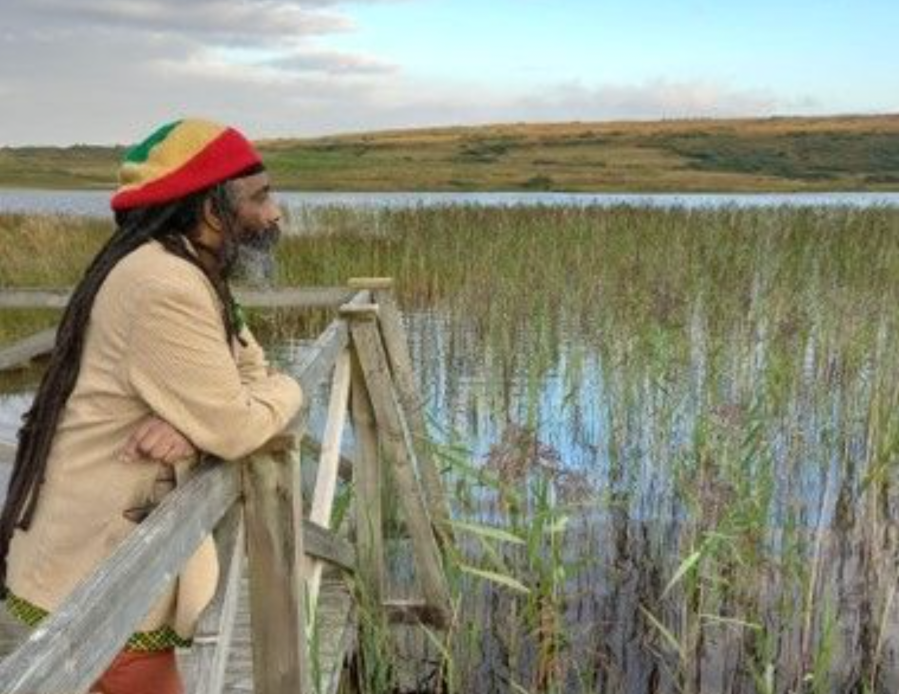The mileage of Our Island Stories goes far beyond the rambles through rural Britain undertaken by author Corrine Fowler – a Professor of Colonialism and Heritage in Museum Studies at the University of Leicester who co-authored the 2021 National Trust report on its country houses’ historical links to the British Empire – and her 10 esteemed walking companions.
Main image: Graham Campbell exploring Islay and Jura | Credit: Corrine Fowler
From Grasmere to Eryri by way of Jura, Islay, Norfolk and the Cotswolds, you’ll be familiar with scenes of modern-day pastoral idyll described within these pages; waiting for a train at a sleepy station, stopping for an ice cream, a crisp autumnal wind, the smell of wildflowers. A lifelong walker who walked LEJOG as a student, Fowler lovingly collects these moments of tranquility synonymous with the British landscape.
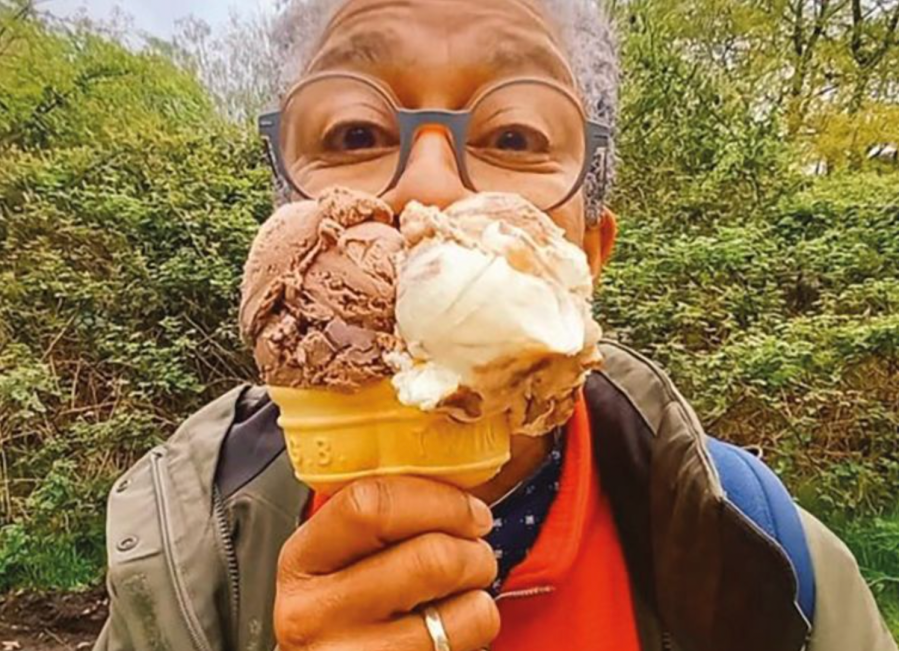
But the draw of nature is not the sole motivation to bring academics, poets and thought-leaders together for a wander. Fowler’s walking companions – from the artist Ingrid Pollard to author of Empireland Sathnam Sanghera, to name just two – all have ancestral connections to empire which they dedicate their working lives to understanding.
The island stories they tell in collaboration with Fowler stretch as far as the reaches of colonial rule – Louisiana, Calcutta, Jamaica – deeply connecting people and place across the globe in ways which should not be surprising. Yet, the book explores how education and empathy gaps have led to blind spots when it comes to our countryside heritage.
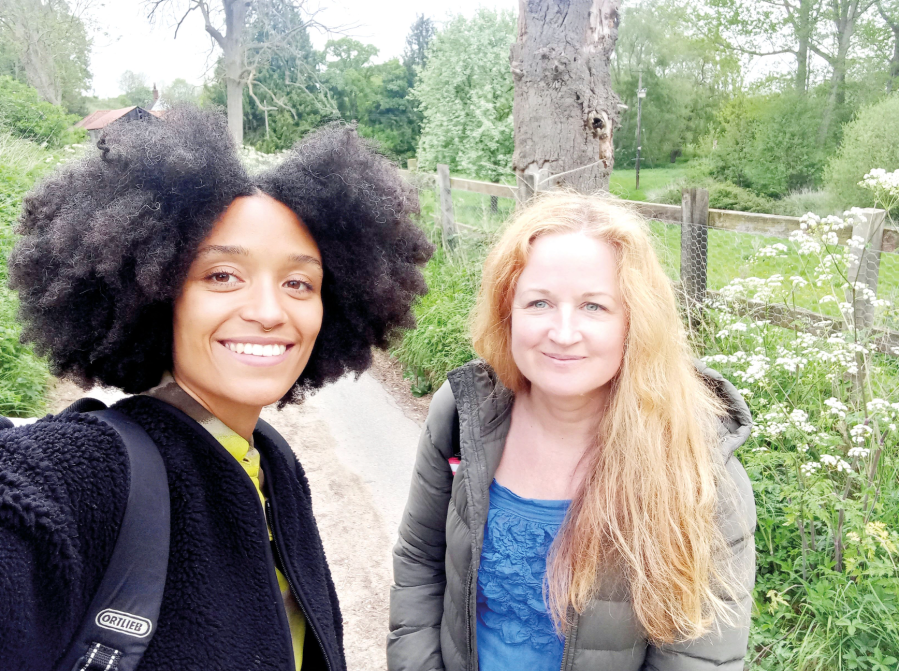
The walks mapped are short, but the histories of how these landscapes and estates came to be manipulated for a handful of humans – often with money earned through slavery – are long, complex and oftentimes, painful. So painful, perhaps, they’ve been buried for fear of interrupting the polite conversation associated with a ‘Good Day Out’ (a National Trust slogan some of you may recall) in the countryside.
We shouldn’t need to be gently spoon-fed knowledge about our beloved landscapes. Yet, Fowler delivers the facts of our history – evidenced through parliamentary, personal and press archives from across the globe – without judgement.
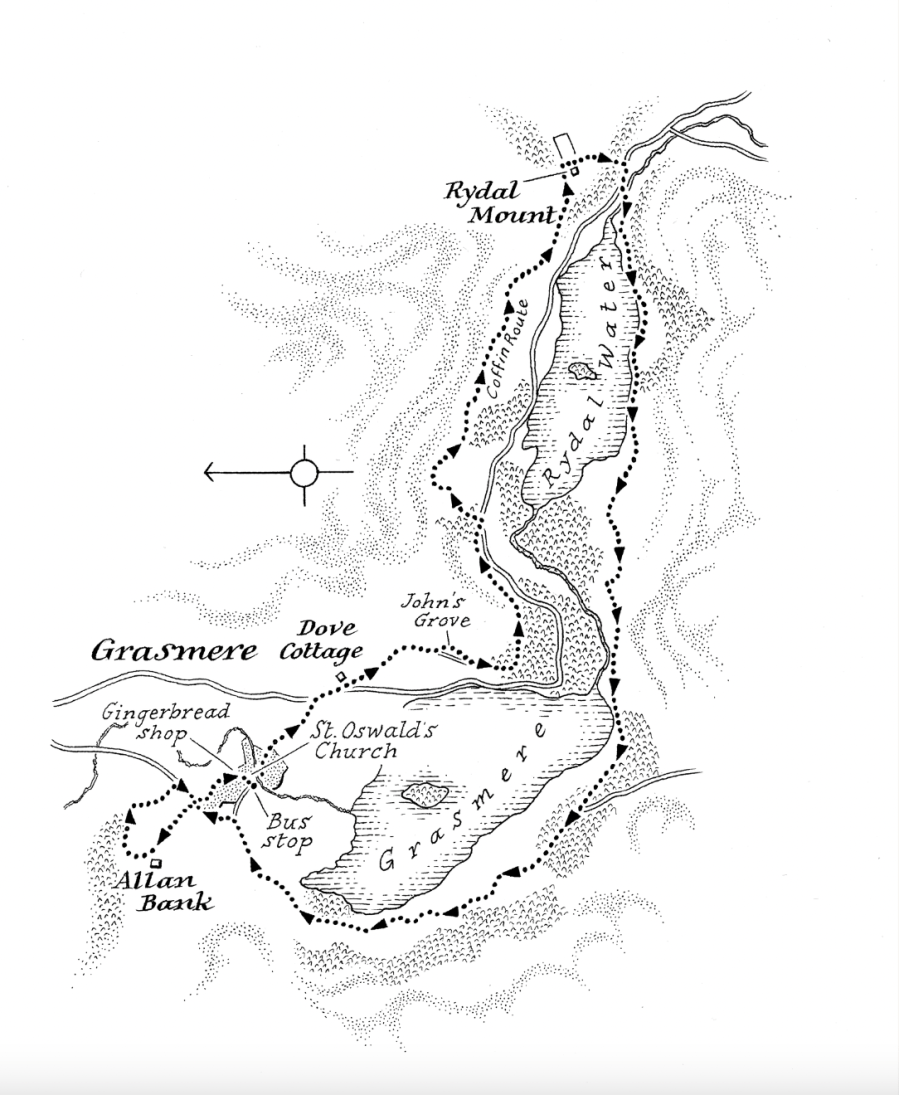
The author sits between generations in a place where understanding and wisdom trumps fear and ignorance. Fowler is descended from French slave traders and her son is descended from people who were enslaved, she explains.
Hers is an empathetic approach and the exchanges between author and interviewee, against the backdrop of landscapes shaped by colonialism, meander amicably around difficult subjects of slavery, race, rural poverty, enclosure, perceived ownership and belonging. They are subjects intrinsically tied together but rarely attended to in the same narrative until now.
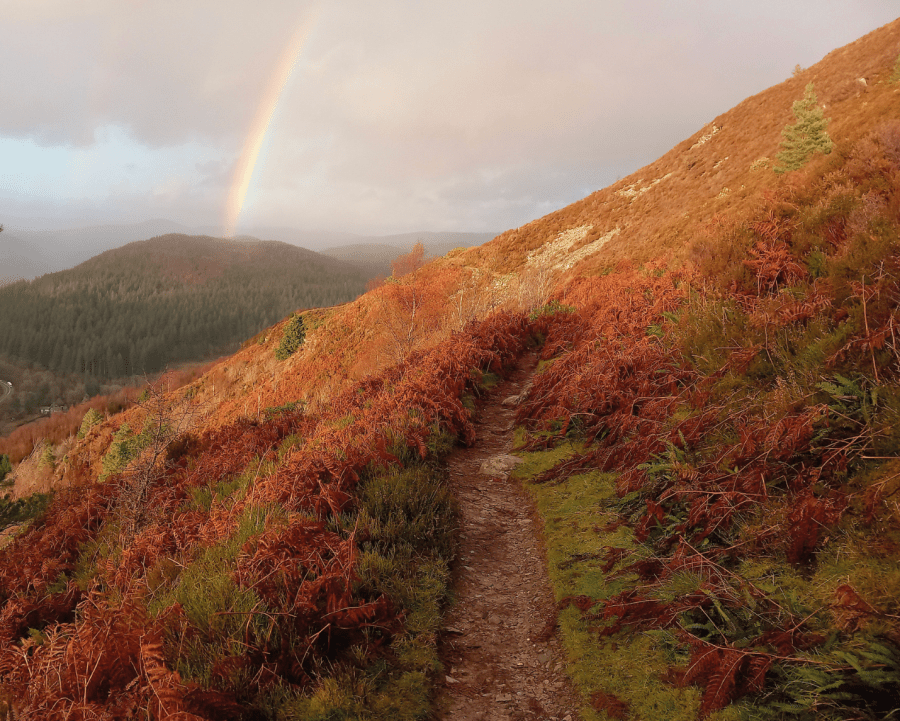
Outside, in nature, these conversations are given space – literally and metaphorically – to exist and develop. Perhaps accidentally, in writing without ego, Fowler has crafted a hopeful book about allyship outdoors and deepening our understanding of our shared heritage in order to create a future in which the countryside can be enjoyed freely and without judgement by all.
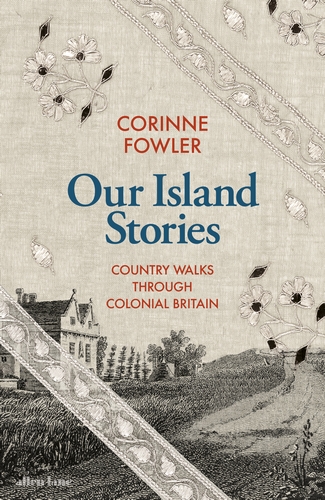
Our Island Stories is published by Penguin Books (hardback, £25).
When contributors to The Great Outdoors aren’t out walking, some like to relax with a good book. Read their outdoor book reviews and discover your next adventurous bedtime story.

